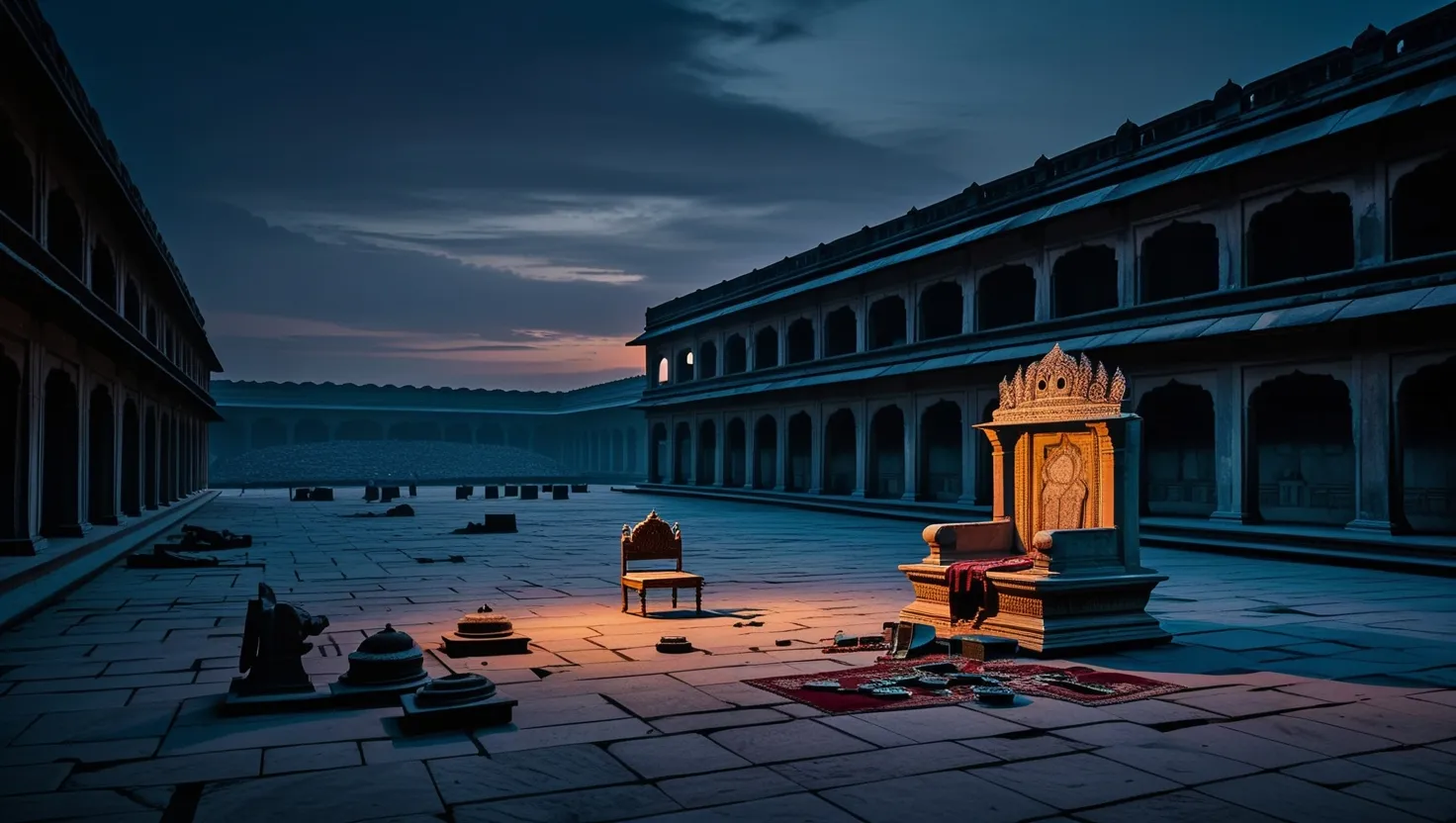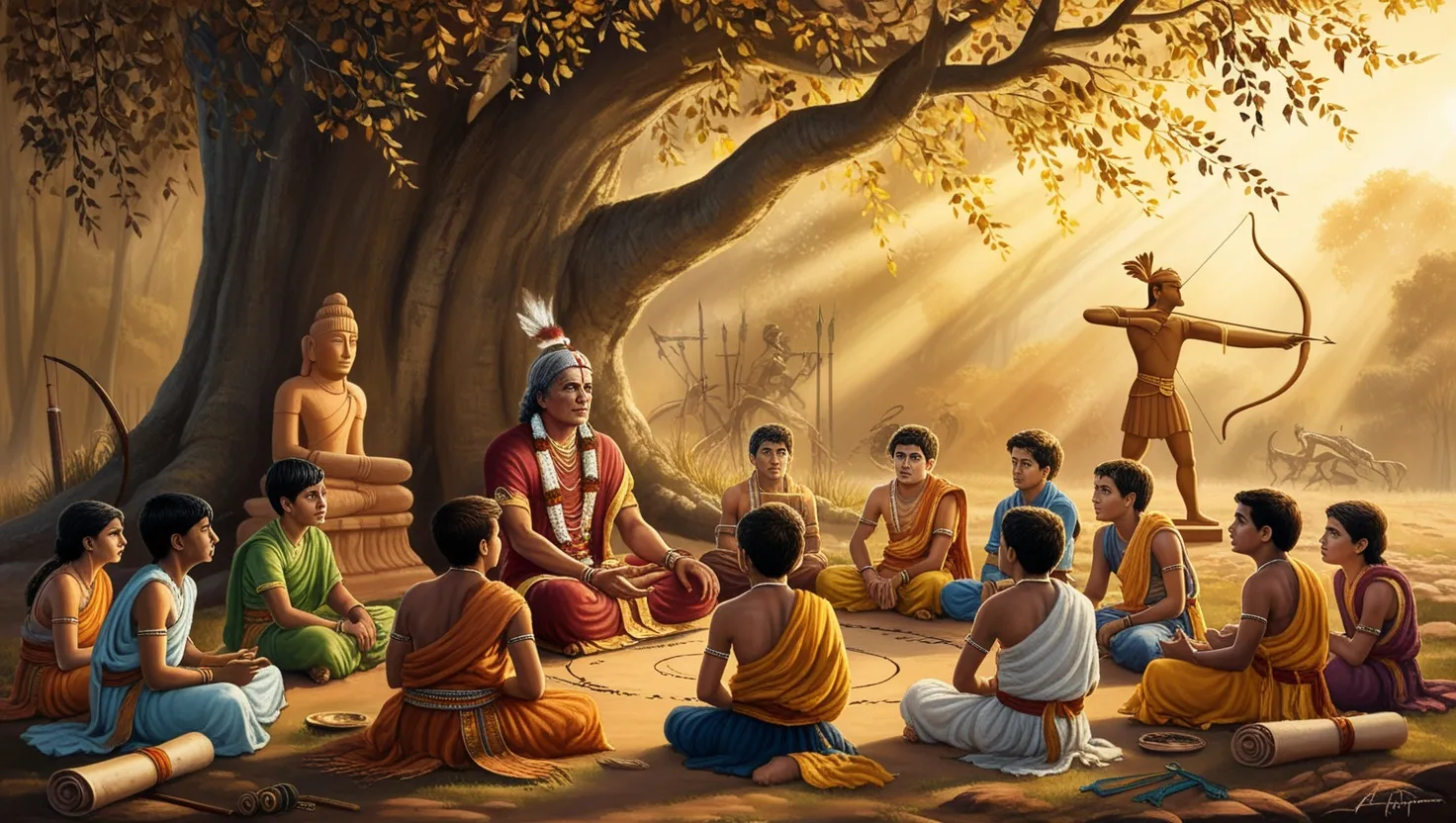If you look closely at the Mahabharata—beyond the clang of swords and the thrones at stake—you’ll see that its true architects often remained in the shadows, shaping destinies not just through battle but through choices, questions, and sometimes even silence. We usually talk about Krishna’s cunning, Arjuna’s courage, Bhishma’s sacrifices. But what happens if I invite you to trace the epic’s course through the women at its heart? Their influence, often indirect but always powerful, reveals an epic that is as much about what is said in whispers and decided in private chambers as it is about grand public gestures.
Let’s start with a question: what is the price of a secret? Kunti’s life is a study in decisions weighed heavily by social constraints. As a young woman, empowered with a mantra to invoke gods, she acts on curiosity and finds herself with a child before marriage. Fear of scandal, which often shadowed women more intensely than men in ancient times, leads her to abandon her firstborn, Karna, launching a story where brothers become enemies. Was this only about personal shame, or did Kunti, on some instinctive level, realize that one secret could tip the scales of history? Even later, as Karna fights on the opposite side, Kunti holds her silence, bearing a burden that warps the fate of nations and the hearts of her sons.
“Three things cannot be long hidden: the sun, the moon, and the truth.” – Buddha
Moving from mother’s secrets to a queen’s self-sacrifice, Gandhari stands out, not just as a mother to a hundred sons, but as a personification of willful blindness. When Gandhari marries the blind king Dhritarashtra, she chooses to blindfold herself throughout her life. Loyalty? Defiance? Both, perhaps. But how did this self-imposed blindness ripple outwards? Gandhari’s inability to see allowed Duryodhana’s arrogance and resentment to go unchecked, tilting the kingdom towards disaster. And when grief finally speaks through her—a curse leveled at Krishna himself—it’s as if the years of silence and pain boiled over, altering destinies beyond her family, into the very era that followed.
Why do we equate strength with visibility? Sometimes, as Gandhari demonstrates, it’s the quietest acts that leave the longest shadows.
Whenever I read Draupadi’s story, I’m struck by the power of her questions. In the Kaurava court, after Yudhishthira gambles away everything—including her—she famously asks, “Did you lose yourself first, or me?” It’s not just a plea for dignity; it’s an argument that shakes the intellectual underpinnings of the dice game itself. Draupadi demands justice, not pity.
Have you ever wondered why this single woman’s humiliation was enough to set an entire war in motion? Her refusal to remain silent, her insistence that injustice must be answered, turned a private wrong into a cosmic demand for balance. The war to restore dharma (righteousness) finds its moral voice in Draupadi’s outrage.
“Freedom is never given; it is won.” – A. Philip Randolph
Draupadi’s strength wasn’t just in defiance. She managed resources, kept the royal household together in exile, and even in exile, she was a leader, organizer, and the glue binding the Pandavas. She had to win and command respect in a male-dominated court. When Krishna calls her “sakhi,” he honors a friend, counselor, and equal—not a victim.
Every epic has a beginning, and in the Mahabharata, that beginning is shaped by the ambitions of Satyavati, the fisher-girl who became a queen. Satyavati leveraged her circumstances fiercely, extracting a promise from Bhishma—her fiancé’s son—that he would never claim the throne, just to secure her own children’s succession. Think for a moment: that single vow, born of Satyavati’s tenacity, sows seeds that ultimately tear the dynasty asunder.
But it wasn’t ambition alone—Satyavati manipulates, negotiates, and schemes, even asking sage Vyasa to father heirs, keeping the royal line strong when it seems doomed by infertility. Some may view her as cold but think about the tools she had. She operated through negotiations, relationships, and strategy, because open power was seldom handed to women.
Do you think ambition is only virtuous when men possess it? Satyavati’s life argues otherwise.
We often overlook Madri, wife of Pandu, whose final act defines her children’s early lives. When Pandu dies, Madri chooses to follow him, leaving her twin sons, Nakula and Sahadeva, to be raised by Kunti. On the surface, this might look like loyalty or self-sacrifice. But what are the aftershocks? Kunti is left, not just a widow, but a mother to five boys from three mothers, shouldering an immense task alone. The strong bonds among the Pandavas—and some of their hesitations—might trace back to this patchwork family and its singular maternal anchor.
Have you ever noticed how epic tales often gloss over acts that change family dynamics? Here, a woman’s “exit” shapes not just private grief but the future politics of a nation.
Sometimes, the Mahabharata’s women operate at the edges, but their hands still shape the center. Ulupi, the Naga princess, is often forgotten in the grand sweep of war and politics. Yet, when Arjuna is cursed to lose his masculinity, it is her intervention—knowledge, persuasion, perhaps a whisper from old mythic wisdom—that restores him. Without her, the outcome of future battles might have been completely altered.
Peripheral? Hardly. Ulupi shows that influence does not always grow from royal courts. Sometimes, it slips in quietly, turning points only visible if we know where to look.
“Well-behaved women seldom make history.” – Laurel Thatcher Ulrich
The Mahabharata’s many women lived within a world that rarely gave them formal power. Yet, if you examine their actions—complicated, thoughtful, sometimes harsh—you see unmistakable influence. They are strategists, ethicists, risk-takers, and in Kunti’s and Draupadi’s case, even visionaries.
Some stories hint that even the sharpest wit or greatest strength can be futile against fate. But is that really true? Or does the epic suggest that fate itself bends, quietly, towards the choices and sacrifices made by these women?
Let’s not forget the price they paid. Satyavati, fierce as she was, died disillusioned, her schemes scattering the family she worked so hard to support. Kunti’s silence saves and destroys in equal measure. Gandhari’s loyalty condemns as much as it blesses. Draupadi, though triumphant in her demand for justice, loses children and dreams. Even the smallest decisions, made far from the glare of battle, ripple into legend.
How often do we overlook the unseen architects of our own stories? Whose decisions, made quietly but resolutely, set the rhythms of our families, communities, even nations?
The Mahabharata refuses simple answers. For every act of power, there is a moment of vulnerability; for every silence, a thousand consequences. These women did what they could, with what they had, where they were. If you seek the epic’s moral questions, its challenges about justice, loyalty, loss, and ambition, you’ll find them written in their legacies.
As you think about the Mahabharata, ask yourself: Who truly moves the world? Is it the person holding the sword, or the one who sets the sword in motion?
“Courage is not the absence of fear, but the triumph over it.” – Nelson Mandela
I believe that after all the battles are tallied and all the thrones claimed or lost, it’s often the hardest choices made in the faintest light—often by women—that leave their mark on history’s grandest epics.






